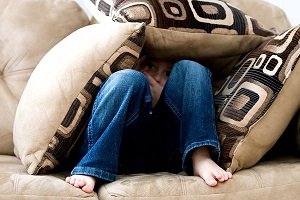Lithium for Bipolar Disorder
TweetEffectiveness of Lithium in Bipolar Disorder
Medications for bipolar disorder are prescribed by psychiatrists-medical doctors (M.D.) with expertise in the diagnosis and treatment of mental disorders. While primary care physicians who do not specialize in psychiatry also may prescribe these medications, it is recommended that people with bipolar disorder see a psychiatrist for treatment.
If the patient is taking lithium, tell her and her family to temporarily discontinue the drug and notifY the physician if signs or symptoms of toxicity, such as diarrhea, abdominal cramps, vomiting, unsteadiness, drowsiness, muscle weakness, plural, and tremors, occur.
Lithium, the first mood-stabilizing medication approved by the U.S. Food and Drug Administration (FDA) for treatment of mania, is often very effective in controlling mania and preventing the recurrence of both manic and depressive episodes.
Lithium is a top choice for acute mania and for maintenance in 'classic' bipolar disorder. Because of its narrow therapeutic range, blood levels must be monitored; also heart and kidney function (EKG, blood and urine tests). Medications such as diuretics, that block its excretion require caution.
During a depressive episode, people with bipolar disorder commonly require additional treatment with antidepressant medication. Typically, lithium or anticonvulsant mood stabilizers are prescribed along with an antidepressant to protect against a switch into mania or rapid cycling. The comparative efficacy of various antidepressants in bipolar disorder is currently being studied.
In some cases, the newer, atypical antipsychotic drugs such as clozapine or olanzapine may help relieve severe or refractory symptoms of bipolar disorder and prevent recurrences of mania. More research is needed to establish the safety and efficacy of atypical antipsychotics as long-term treatments for this disorder.
Some Important points on lithium for bipolar disorder
The fact that lithium acts to control rather than cure manic-depressive illness is important. It means that if people stop taking lithium, manic or depressive episodes are more likely to recur.
-
Preventing further episodes-Lithium can help prevent episodes of mania and depression from recurring.
-
Lithium can be very toxic and when we use it medically, we check the levels to ensure that it does not get to excessive doses. Lithium toxicity produces confusion disorientation, muscle hyperirritability. Don't take lithium without consulting your Doctor.
- Check your blood level, serum sodium and thyroid levels from time to time.
Side effects of lithium for bipolar disorder:
Some of the side effects of lithium for bipolar disorder are as follows:
- a fine tremor,
- increased thirst and
- increased urination.
- Diarrhea and vomiting as well as weakness and lack of coordination are usually signs of toxicity rather than normal side effects.
Bipolar Disorder - Bipolar Disorder is the form of depressive illness in which the sufferer has periods of being on a high, as well as periods of depression.
Treatment of Bipolar Disorder - Effective treatment is available for bipolar disorder including lithium .


Sometimes crying or laughing
are the only options left,
and laughing feels better right now.

Current Issue
 Self Help Leaflets Take the help of our self help leaflets or booklets. |
 The DG Magazine All about living with depression |


















